Are you ready to take the next exciting step in your construction career? We're thrilled to extend an employment offer that outlines not just the roles and responsibilities, but also the incredible growth opportunities that await you. In this letter, we'll cover key details about your position, compensation, and perks that come with being part of our dedicated team. So, let's dive in and explore how you can build a brighter future with us!

Job Title and Description
The construction worker position entails performing essential tasks on-site, such as assisting with the assembly of structures, operating machinery like excavators and forklifts, and following safety protocols to prevent accidents. Successful candidates will work on projects throughout urban areas, often collaborating with skilled tradespeople to complete residential and commercial buildings. Duties include read blueprints, handle materials (including steel and wood), and maintain tools and equipment in optimal condition. Employment may span various weather conditions and terrains, emphasizing the importance of physical stamina. Familiarity with OSHA regulations (Occupational Safety and Health Administration) is a plus, ensuring a safe working environment for all personnel. Typical working hours range from 40 to 60 hours per week, dependent on project deadlines.
Compensation and Benefits
Compensation packages for construction workers often include hourly wages ranging from $15 to $30 depending on skill level and regional labor demands. Benefits typically encompass health insurance (medical, dental, vision) with premiums partially covered by employers, retirement plans like 401(k) with matching contributions, and paid time off including vacations and holidays. Additional perks may consist of safety equipment stipends, overtime pay at 1.5 times the regular rate for hours exceeding 40 per week, and opportunities for skills training and certifications to advance career prospects. Bonuses based on project completion and performance can also enhance overall earnings.
Work Schedule and Duration
Construction workers often face specific work schedules that vary depending on project demands, typically ranging from Monday to Friday, with shifts lasting 8 to 12 hours. Duration of employment frequently aligns with the project's timeline, which may span several weeks to months. Seasonal factors, such as adverse weather conditions, may also influence work continuity, affecting overall job security. Regularly, overtime opportunities arise during critical phases of construction, offering potential for increased earnings. Compliance with labor laws ensures appropriate breaks and safety measures to protect workers' health and well-being on-site.
Safety Protocols and Equipment
Construction workers must adhere to strict safety protocols to ensure a secure work environment. Personal protective equipment (PPE) such as hard hats, gloves, safety goggles, and steel-toed boots is critical for minimizing injury risks on construction sites in urban areas. Tools and machinery like power drills, scaffolding, and excavators require regular maintenance to prevent accidents. Safety meetings, scheduled weekly, are essential to reinforce procedures and address potential hazards like falls and electrical issues. Compliance with Occupational Safety and Health Administration (OSHA) regulations, which mandate training programs and safety certifications, is non-negotiable for all workers. Proper signage indicating safety zones and emergency exits enhances awareness and reduces risks on-site.
Employment Terms and Conditions
The employment offer for construction workers includes essential terms and conditions that dictate the nature of the job. The roles typically encompass responsibilities such as operating heavy machinery (e.g., bulldozers, excavators), adhering to safety regulations (OSHA guidelines), and completing tasks on various project sites (residential and commercial) within a specified location. Compensation may vary based on experience levels (entry-level, mid-level, skilled labor) and can include hourly wages ranging from $15 to $35 per hour. Benefits might encompass health insurance, retirement plans (like 401(k) contributions), and overtime pay for hours exceeding a standard workweek of 40 hours. Additionally, workers are expected to comply with uniform requirements (PPE standards) while maintaining an up-to-date knowledge of building codes and construction techniques. The employment duration is typically based on project timelines, ranging from temporary contracts to permanent positions. Regular performance evaluations will assess adherence to quality standards and occupational safety practices.

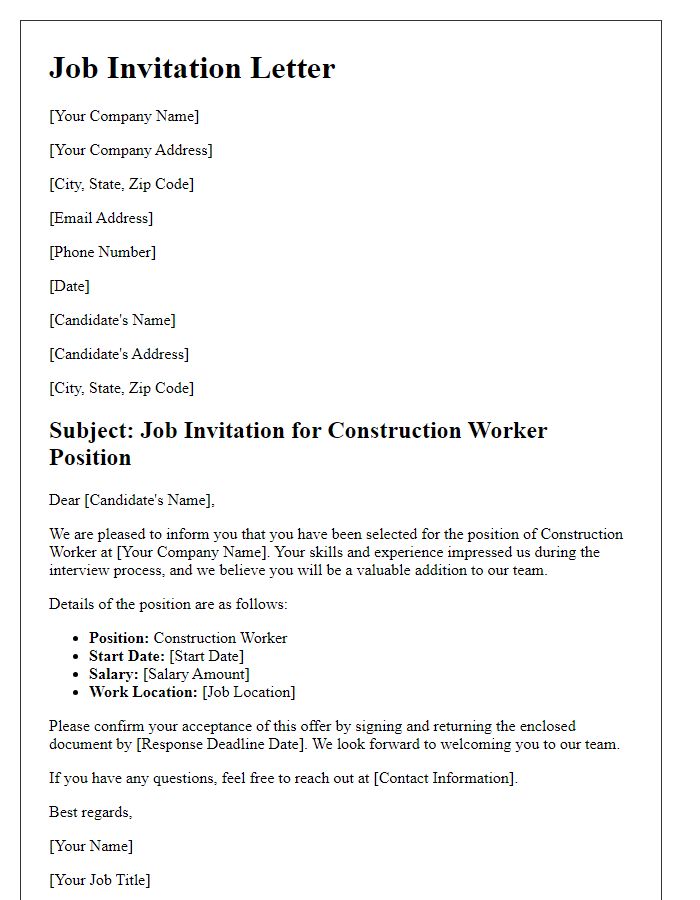
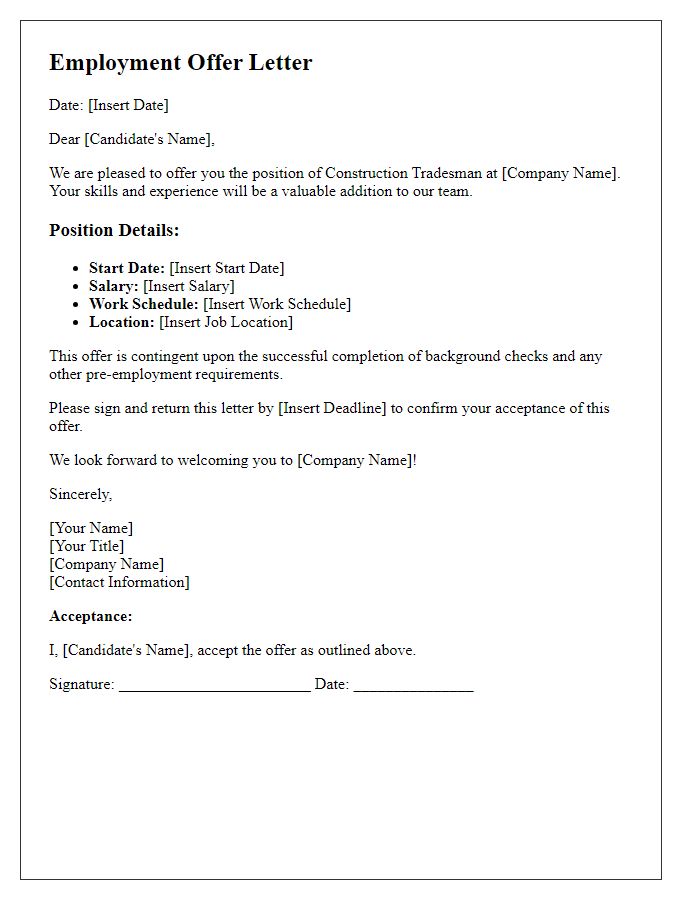
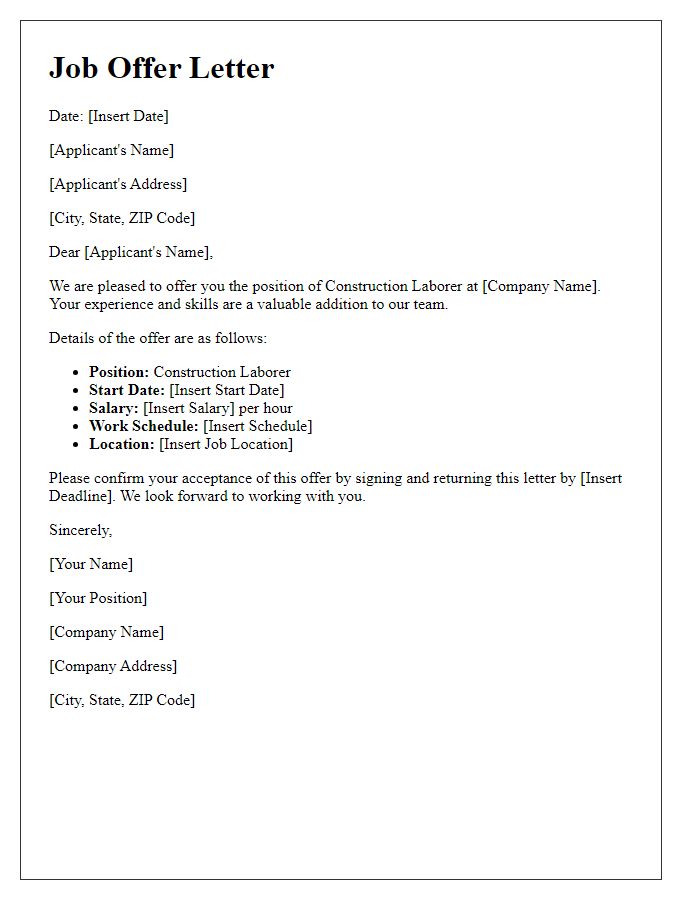
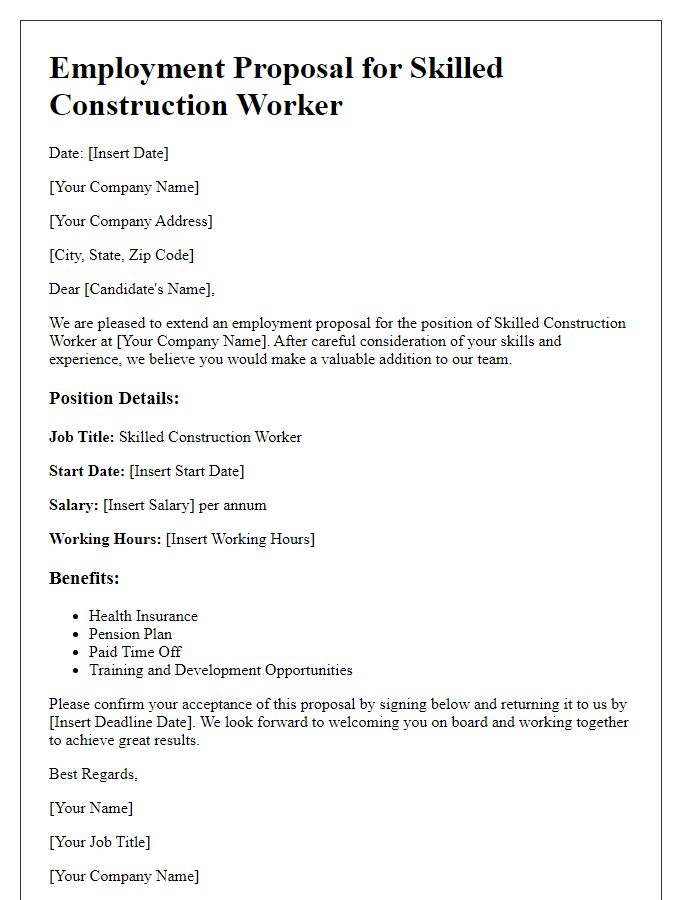
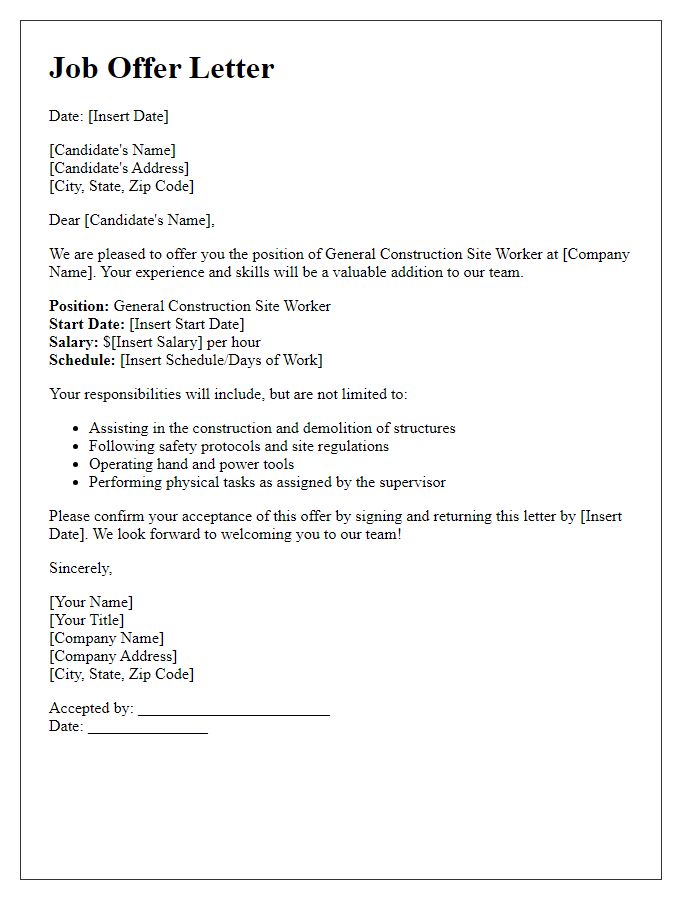
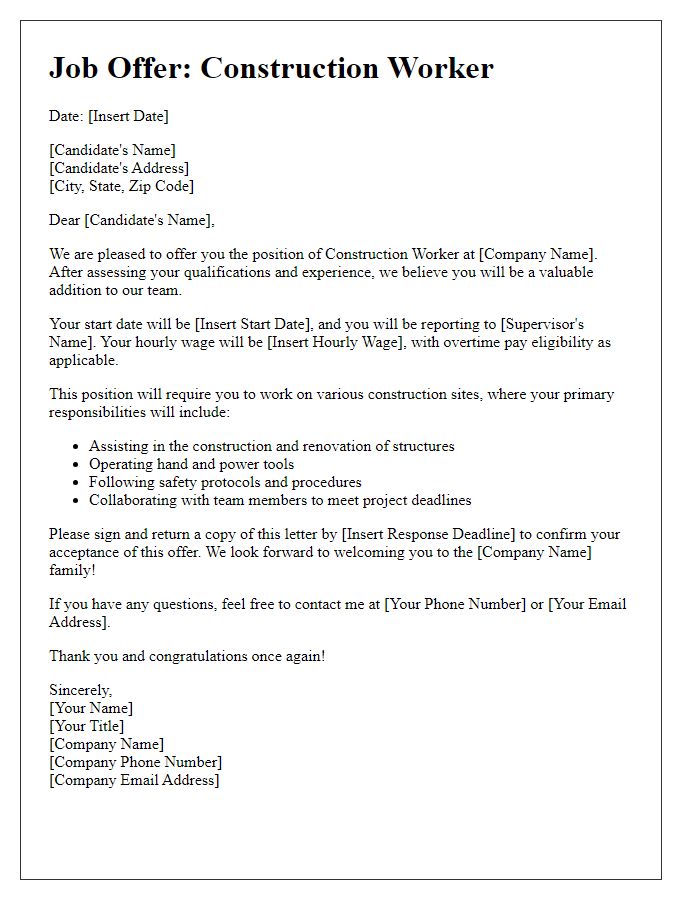

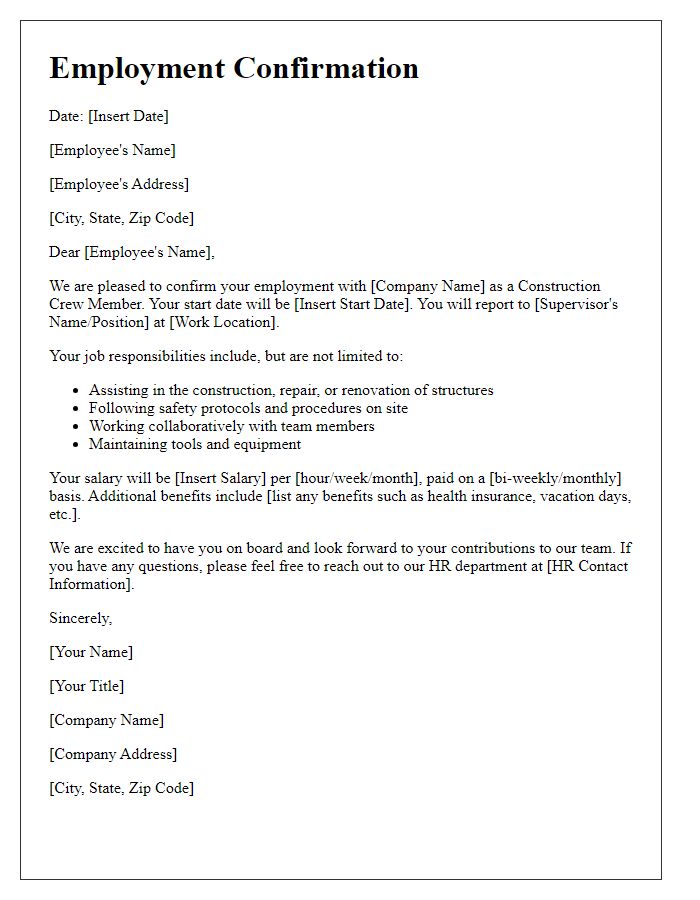
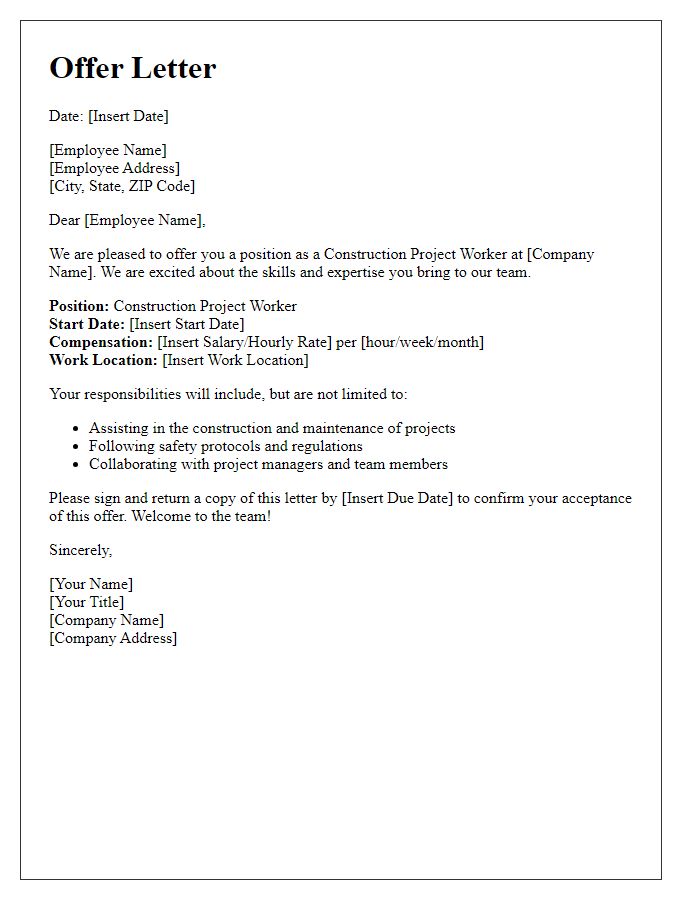
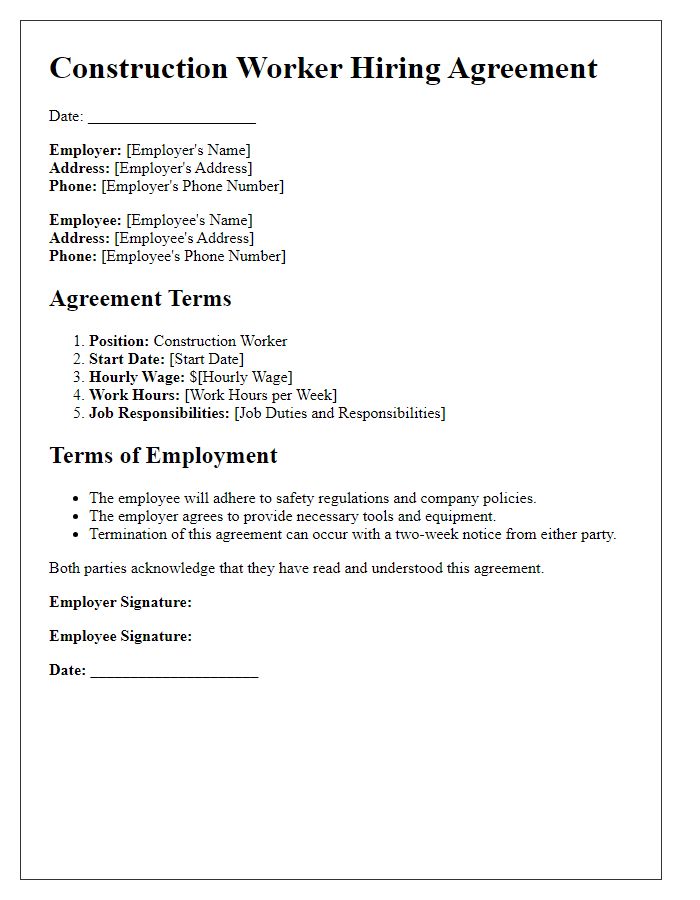


Comments